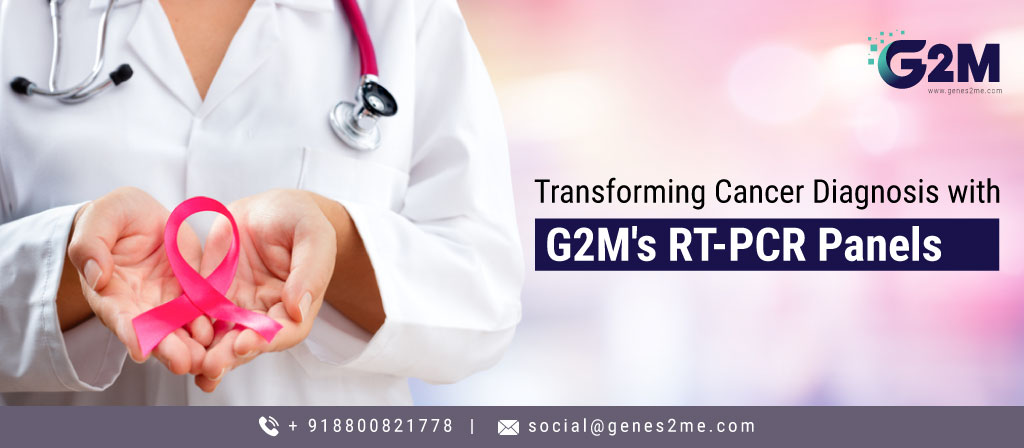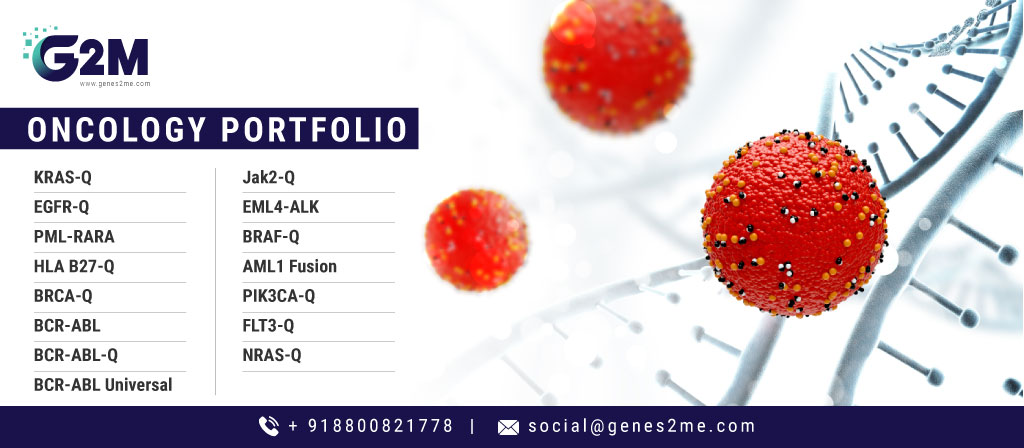Role of RT-PCR in Oncology Detection

Introduction: In the realm of oncology, the quest for early detection methods has been relentless, with researchers continually seeking innovative approaches to combat cancer. Among these, Reverse Transcription Polymerase Chain Reaction (RT-PCR) has emerged as a powerful molecular tool, not only for diagnosing infectious diseases but also for
revolutionizing RT-PCR-based oncology detection by offering precise detection and quantification of cancer-specific biomarkers at the RNA level.
Understanding RT-PCR in Oncology: RT-PCR is a molecular biology technique used to amplify and detect specific sequences of RNA. Unlike traditional PCR, which amplifies DNA, RT-PCR begins with RNA, making it invaluable for studying gene expression, viral infections, and notably, cancer biomarkers. By converting RNA into complementary DNA (cDNA) through reverse transcription, RT-PCR enables the amplification and analysis of specific RNA targets associated with cancer initiation, progression, and treatment response.
Oncology Detection: Early detection of cancer is paramount for improving patient outcomes. RT-PCR plays a crucial role in this by detecting minute quantities of RNA molecules indicative of cancerous cells. Tumor-specific biomarkers, such as oncogenes, tumor suppressor genes, and fusion genes, serve as targets for RT-PCR analysis. By analyzing these biomarkers in various biological samples, including blood, tissue, and body fluids, RT-PCR enables the identification of cancer at its nascent stages, facilitating timely intervention and personalized treatment strategies.

Applications in Oncology: The applications of RT-PCR in oncology are multifaceted and extend across various aspects of cancer management:
- Diagnosis of Cancer Subtypes: Utility of RT-PCR in diagnosing various cancer subtypes based on the expression profiles of tumor-specific biomarkers. By targeting oncogenes, tumor suppressor genes, and fusion genes, RT-PCR assays can accurately classify tumors, aiding in differential diagnosis and personalized treatment strategies.
- Prognosis: Cancer prognosis is influenced by factors such as tumor aggressiveness, metastatic potential, and treatment response. RT-PCR allows for the quantification of gene expression levels associated with these prognostic markers, empowering clinicians to predict disease progression and tailor therapeutic interventions accordingly.
- Monitoring Treatment Response: Assessing treatment efficacy is essential for optimizing patient care. RT-PCR enables real-time monitoring of gene expression changes following treatment initiation, offering valuable insights into treatment responses and guiding adjustments to therapeutic regimens as needed.
- Minimal Residual Disease (MRD) Detection: MRD refers to the presence of residual cancer cells post-treatment, undetectable by conventional diagnostic methods. RT-PCR’s sensitivity enables the detection of minimal levels of residual disease, aiding in disease surveillance and informing decisions regarding adjuvant therapy and disease management.
- Predictive Biomarker Analysis: RT-PCR facilitates the analysis of predictive biomarkers associated with drug sensitivity or resistance. By identifying patients likely to respond to specific therapies, RT-PCR enables the implementation of targeted treatment approaches, optimizing therapeutic outcomes while minimizing adverse effects.
The integration of RT-PCR with emerging technologies such as next-generation sequencing (NGS) and digital PCR holds promise for further enhancing oncology detection capabilities. Additionally, advancements in single-cell RNA sequencing and liquid biopsy techniques offer new avenues for non-invasive cancer detection and monitoring, expanding the reach of RT-PCR in precision oncology.
Genes2me RT-PCR Oncology Detection:
At Genes2Me, we are at the forefront of innovative oncology detection methods, harnessing the power of RT-PCR (Reverse Transcription Polymerase Chain Reaction) technology. Our in-vitro diagnostic tests are designed for the qualitative detection of oncogene mutations, including major genes and gene fusions crucial for protein production, cell growth, and cell survival. Mutated forms of these genes and proteins have been identified in various types of cancer, notably non-small cell lung cancer.

Our RT-PCR kits are meticulously designed to selectively amplify and detect mutant-specific sequences present in patient samples. Leveraging allele-specific mutations, these kits offer high sensitivity and specificity, enabling the accurate detection of cancer-associated genetic alterations. Whether it’s identifying actionable mutations in non-small cell lung cancer or other malignancies, our kits provide clinicians with the insights needed to make informed decisions regarding patient care and treatment.
Some of our significant RT-PCR assays for oncology detection are:
- PML-RARA Real-Time PCR Kit
- BCR-ABL Real-Time PCR Kit
- PIK3CA-Q Real-Time PCR Kit
- EGFR-Q Real-Time PCR Kit
- Jak2-Q Real-Time PCR Kit
- HLA B27-Q Real-Time PCR Kit
- BRAF-Q Real-Time PCR Kit
- BRCA-Q Real-Time PCR Kit
- AML1 Fusion Real-Time PCR Kit
- EML4-ALK Real-Time PCR Kit
- NRAS-Q Real Time PCR Kit
- KRAS-Q Real-Time PCR Kit
